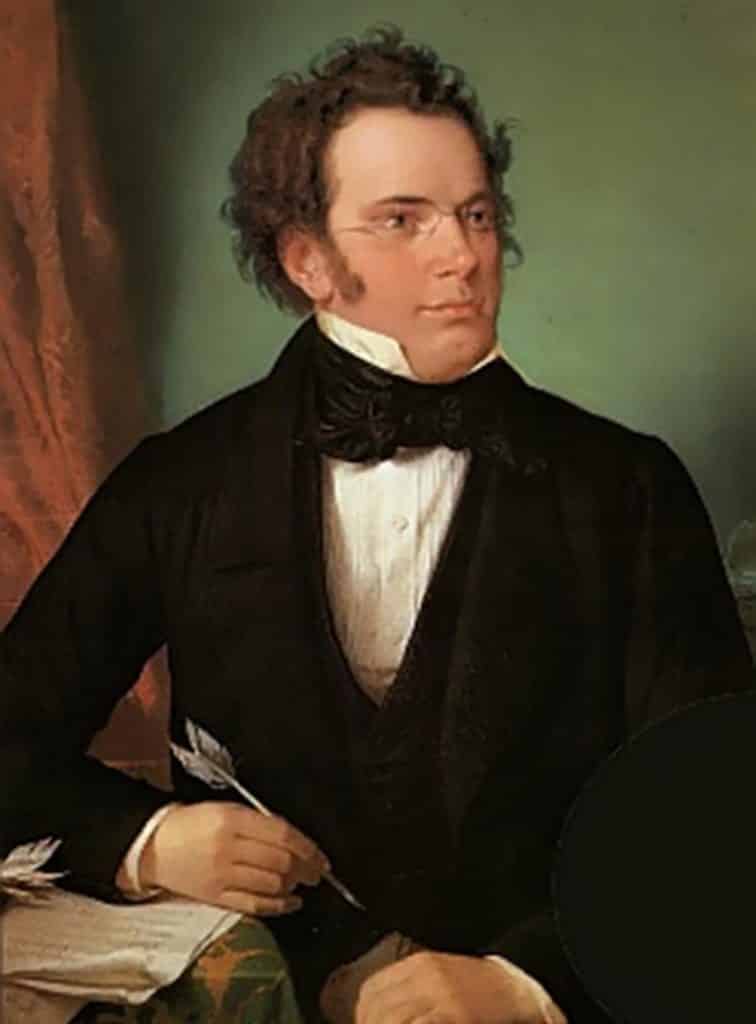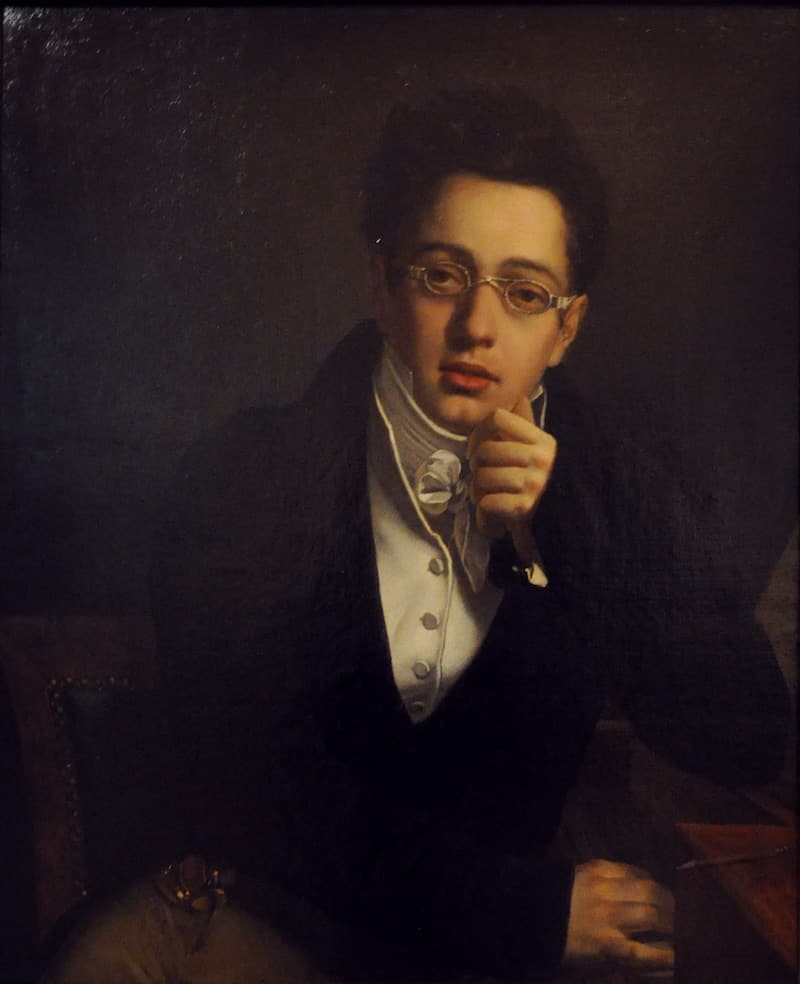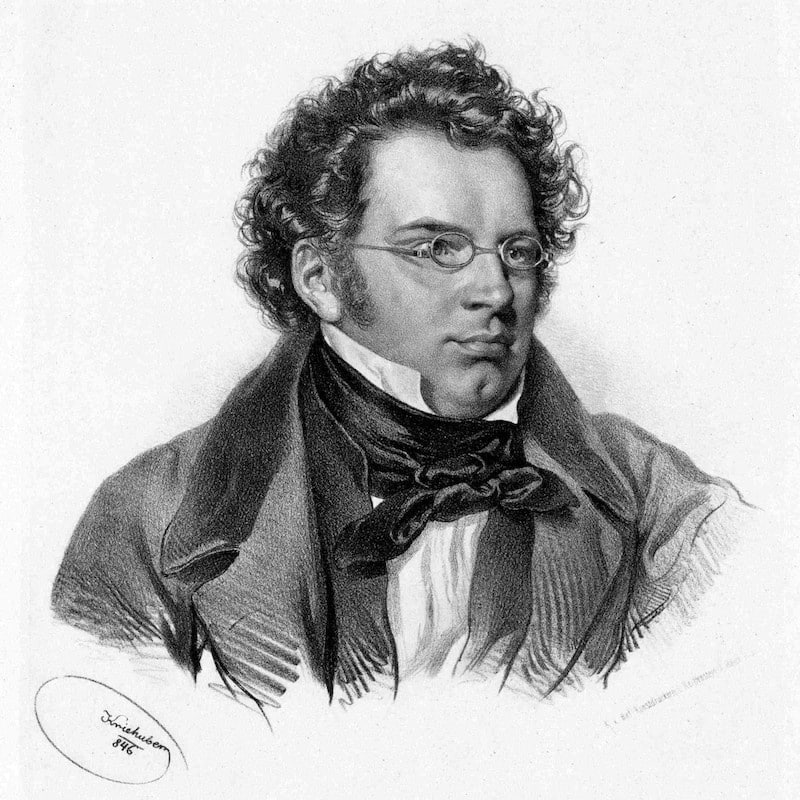Austria has produced some of history’s greatest composers, and Franz Schubert is one of the most famous.
Born on January 31, 1797, in Vienna, Schubert quickly became a musical great. Despite his short life, he composed around 600 pieces, including nine symphonies, string quartets, and several sonatas.
Schubert is celebrated as one of the finest composers of all time, known for his creative melodies and harmonies. But there are many little-known facts about him.
If you’re curious to learn more, read on for 10 interesting facts about Franz Schubert that you probably didn’t know!
1. He Was a Reveler

Franz Schubert was a boisterous alcoholic. He passed his evenings relishing wine and music, similar to several other iconic composers.
He appreciated a good time and was famed for his musical gatherings with a group of artists known as “Schubertiads.” During their gatherings, they would perform some of his most recent works.
2. He Possessed Unique Characteristics
Schubert was a short man at barely five-foot-one tall. He was also somewhat overweight, which, combined with his odd height and diminutive frame, earned him the nickname “Schwammerl” (Little Mushroom).
Other distinguishable physical traits of Schubert’s were his stutter and his tendency to shuffle when he walked.
Schubert was also nicknamed “Kanevas” because he frequently questioned new acquaintances, asking them, “Kann er was?” (What can he do?).
3. He Hailed From a Large Family
Like the rest of the world in the 18th century, infant mortality was high in Austria. As a result, large families were typical in Vienna, and Schubert’s family was not an exception.
His father, Peter, was first married to Elisabeth Vietz at 19. Together, they bore 14 children, with only five surviving. The youngest was Franz.
After the death of his wife, Peter remarried, and his second wife bore him five more children.
4. He Did Not Intend to Compose “Ave Maria”
The Roman Catholic prayer “Ave Maria” had two versions: the first was composed by Charles Gounod, who created an arrangement for the verses over J. S. Bach’s first prelude for the keyboard.
The second is Franz Schubert’s rendition. Schubert’s work was initially inspired by Walter Scott’s epic poem “The Lady of the Lake.”
The opening lyrics of the refrain of “Ave Maria” are said to have been the inspiration for Schubert’s adaptation of the “Ave Maria” prayer.
Many artists have arranged and performed their own versions of Schubert’s song, including Pavarotti and Perry Como.
5. His Unfinished Symphony Is a Mystery
Symphony No. 8 in B Minor, known as the Unfinished Symphony, is a piece Schubert started in 1822 but abandoned after two movements six years before his death.
The Unfinished Symphony was discovered over 30 years after Schubert died when an older man claimed the composer had sent him the manuscript around 40 years earlier.
Some music lovers and critics think the missing part of the symphony might be the Entr’acte from Rosamunde, a play by Helmina von Chézy with music by Schubert.
6. He Was Like His Father — Sort Of
Peter Schubert, Franz’s father, was a teacher and amateur cellist who taught Franz music fundamentals. Peter hoped Franz would become a teacher like himself, but his son quickly surpassed all his mentors.
At age seven, Franz was discovered by the Romantic composer Antonio Salieri, who took him to the Imperial Seminary. There, Schubert studied music theory, sang in the choir, and played violin in the orchestra. He later fulfilled his father’s wish by working as a teacher for three years.
7. He Was a Choir Boy

Schubert was enthusiastic about music. His music trainer, Antonio Salieri, pushed him to audition for the Vienna Boys’ Choir — which he did — and was accepted.
After passing the audition, Schubert enjoyed free tuition, a boarding room, and a spot at one of Vienna’s premier schools.
However, when he reached 15, he became ineligible to be a member of the choir; his voice was no longer suitable for a boys’ choir.
Schubert returned home and was then offered a position at his father’s school.
8. He Was Beethoven’s Torchbearer
The great composer Ludwig van Beethoven is reported to have said about Schubert’s work: “Truly in Schubert, there is a divine spark.” He also predicted that Schubert would one day become successful.
In March 1827, Schubert was one of 40 torchbearers at Beethoven’s funeral, along with well-known composers like Hummel and Czerny. This wasn’t because he was a close friend of Beethoven but because of his standing in Vienna society.
When Schubert passed away a year later, he was buried next to Beethoven, just as he had wished. Unlike Beethoven’s grand funeral, his was quite modest since he wasn’t as famous at the time. It was only after his death that people truly recognized his brilliance.
Related: Next, read our list of interesting facts about Beethoven.
9. Many of His Works Were Unpublished

Being rejected by publishers has always been tough for artists, and Schubert experienced this, too.
He created a lot of music in his short life, but he struggled to get it published. Out of about 600 songs, only 187 were published while he was alive. Unfortunately, none of his symphonies or operas were published.
Schubert died at just 31 years old from typhoid and venereal disease, likely contracted from a prostitute, as these infections were common in Vienna in the 1820s.
10. He Had to Choose Between Law and Music
At 19, Franz Schubert started a law course in Vienna while also composing Symphony No. 5. This piece likely made him decide to leave his law studies and focus on music.
Symphony No. 5 is seen as a tribute to classical masters Haydn and Mozart. It’s become a favorite for music lovers and anyone who enjoys Schubert’s work.
The composition reflects the composer’s state at the time: fresh, full of youthful energy, and brimming with melodies.
Final Thoughts On Our List Of Fascinating Facts About Franz Schubert
People often debate Schubert’s place in music history because he blends classical and romantic styles. It wasn’t until many decades after his death that people recognized him as a musical genius.
Regardless, Schubert is seen as one of the last great classical composers.
